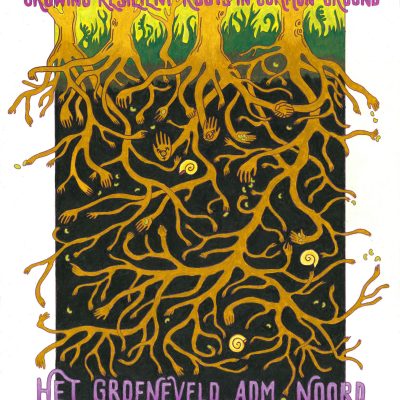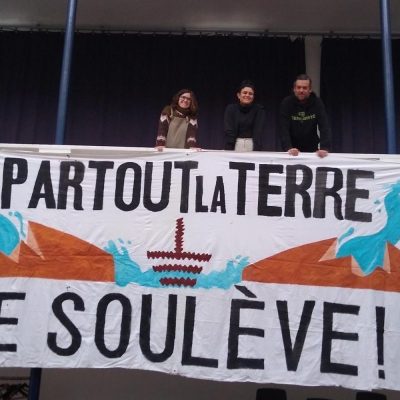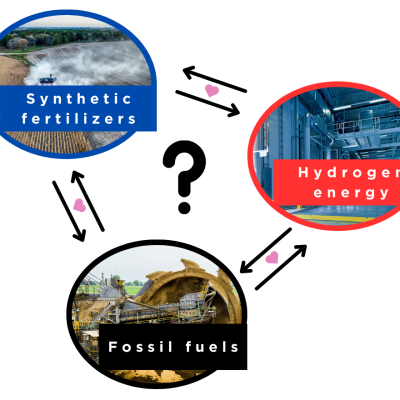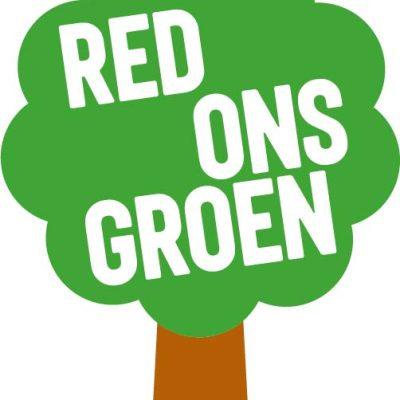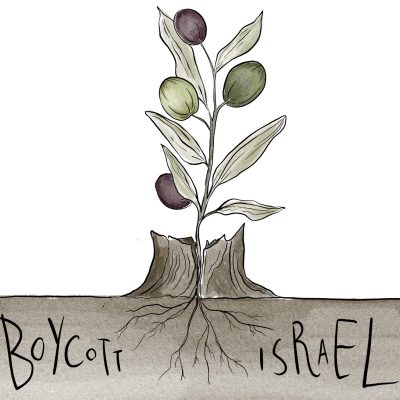On Saturday night, just like on Friday, several performances were on the schedule to relax and have fun after a long day, packed with activities and discussion. One of the performances was a theater play intended to mock Trump’s view of the world. During this play, several people felt uncomfortable, hurt or angry because it featured a stereotypical depiction of a Mexican person. Many people demanded the play to be stopped, while other spectators kept on watching. After the play was stopped, two persons volunteered to hold space for a large group conversation on this incident in particular, on racism and on how we all reacted (or not).
This incident and the way we collectively dealt with the situation are learning experiences for us all, yet painful for many.
As organizers of the FAF#3, we would like to address the harm caused by the theatrical performance on the Saturday night of the camp, which depicted a Mexican character in a racist manner. As reflected in our safer safe policy, which was present at the information point, we as ASEED Europe distance ourselves from any racist, sexist, ableist, queerphobic, elitist and other oppressive behavior and content. We have learned that this policy was not visible enough, should be emphasized more, communicated more clearly with speakers and performers and, most importantly, lived up to.
We want to apologize to everyone for whom the performance was offensive or painful. As organizers we feel responsible for the insufficient communication about this content. This, as well as the late intervention, can be attributed to, on the one hand, a lack of capacity, and, on the other hand, the horizontal organizing structure of ASEED, where we make decisions in a process of consensus, a method that – we have now learned – is not adequate for urgent matters such as this one.
At this point we would like to give a bit of context about what happened from the perspective of the “organizers”.
Throughout the weeks leading up to the camp and the weekend itself, every decision we made was made in consultation with at least two other people in the group. So, when the moment came that people from the organizing team were aware of the racist stereotype being portrayed, we looked for a few more to make the decision on how we would interupt. We discussed with Theatrestraat about turning off the sound and turning on the microphone. Three participants from the festival and one of us took the stage and ended the play, albeit not early enough.
When the play was stopped, people in the audience who did not find the play racist began to shout, and others from the organizing team went directly to these people and asked them to calm down and speak to people respectfully.
At the same moment the kitchen, who had been working hard to feed everyone there, was ready to serve dinner. So we decided to proceed with dinner, out of respect for the kitchen, and also to give everyone a few moments to discuss with each other and process a little what had just happened.
In this highly tense situation with emotions running high and a lot of confusion as to what was happening, we, as an organizing team, decided to stop the program, find a space, facilitators and time to prioritize a discussion about the racist nature of the performance, intentions vs consequences, and what some people felt should have happened.
Despite having already planned a presentation for during the dinner, we cancelled this and delayed the rest of the program for an hour. We also cancelled the two other performances that were planned for in between the bands by the theater group.
We then proceeded to have an assembly to discuss what had just happened, which was attended by some people from the audience, some of the performers, and some of those who initially flagged the racist nature of this caricature. We are very grateful to the people who found the energy to hold this space and facilitate the conversation. The reason that we felt like this conversation needed to be prioritized is that we feel it is very important to create space to have constructive conversation, and try, as a community to address what went wrong.
It is important to note that we don’t believe that there was any possibility to ‘solve’ anything with this conversation. The intention was to create a space for people to share their feelings, perceptions, emotions, and experience of this and sometimes similar situations.
We also feel that it is worth mentioning that during this time there was one person in particular who was very aggressive, and refused to abide by the safer space policy. This person was asked to leave the camp and after some effort, did.
The outline of what happened is in no way whatsoever meant to excuse the racist nature of the performance or ignore critiques of how the situation was handled. The intention here is simply to give a bit of context to a situation that was very chaotic.
- Redistributing priorities: Given the limited amount of capacity available in the preparation of this festival, in the future we will prioritize clear communication about content with workshop givers, speakers and performers.
- Living up to the safer space policy: In future events, the safer space policy will be more visible for everyone entering. Furthermore, we will put the content of the policy into practice by asking people who do not want to abide by it to leave.
- Having an awareness and a mediation team at future events: it is important to have designated people who are looking out for these kinds of situations and who can also be approached in cases of discrimination, harassment, or similar issues.
Apart from this, we recognize that what happened at FAF#3 is also a symptom of the racist society that we live in, therefore going beyond this event. Hence, we want to work together with other people to provide a space for discussion, with the guiding questions: how can we do better to prevent, or deal with such incidents in a constructive way? How can we have these discussions while building up our community?
Thanks again for all of the hard work that was put into making the FAF#3 possible, we could not have possibly done it without all of you.
Love and Rage, the ASEED team.

